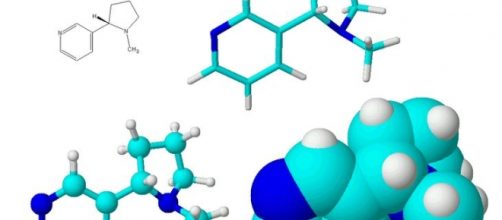The claim of nicotine having addictive properties is well accepted by professionals in the health and medical fields, but is not supported with definitive clinical evidence.Smokers have been told they are addicted by health professionals around the world. This tactic has a term called "proof by assertion." Wikipedia's definition of proof by assertion is "an informal fallacy in which a proposition is repeatedly re-stated regardless of contradiction." Spoiler alert: tobacco is addictive. Nicotine, without additives, has never proven to be addictive on its own, specifically with non-smokers or never-smokers.
These assertive claims need to be addressed properly.
There is no conclusive addiction evidence, only rhetoric
The claim of addiction to nicotine is always stated within the context and accompanied by chemicals and tobacco. Why demonize nicotine? By taking tobacco out of the equation, nicotine is not the cause for addiction to smoking. If these unsubstantiated claims were true that nicotine is "highly addictive" and "more addictive than heroin," wouldn't nicotine products create addicts to their products, and wouldn't health officials advise against using them? Absolutely not. The United States Federal Drug Administration changed nicotine replacement therapy (NRT) labels and stated "decades of research and use have shown that NRT products sold OTC do not appear to have significant potential for abuse or dependence." Conclusion?
There is no clinical evidence to support nicotine addiction.
The same conclusion is coming from consumers of e-cigarettes. When it comes to tobacco harm reduction, vaping products are taking smokers away from cigarettes. Nicotine provides a "throat hit" similar to what they experienced when smoking cigarettes, and satisfies the hand to mouth habit they've done for years. To reduce nicotine by choice is simple depending on the strength chosen. Some choose higher strength, some reduce strength over time, and others choose to go nicotine-free.
There's more to nicotine
Nicotine isn't taking any more bad press. The chemical is not only a derivative of tobacco, it's in potatoes, peppers, and other nightshade plants.
That's right, you've been eating nicotine in your diet for years. Groundbreaking studies are taking nicotine to a whole new level and giving hope for Parkinson's disease. A study from Vanderbilt University by Dr. Paul Newhouse showed no withdrawal symptoms from all non-smoking Alzheimer’s patients once they stopped using a nicotine patch, and none of them started smoking. Dr. Ki Hyeong Lee was faced with a four year old suffering from as many as 20 epileptic seizures a night in Orlando, Florida. He decided to "prescribe" a nicotine patch and the child's "seizures stopped almost immediately," giving this child a new lease on life.
There's no conclusive evidence to point to showing any addiction to nicotine, alone, in an unaltered natural state.
For any professional health or tobacco expert claiming nicotine is addictive in and of itself, I respectfully request that you show proper evidence, clinical research, and science in the comment section below -- and I thank you for it in advance.

